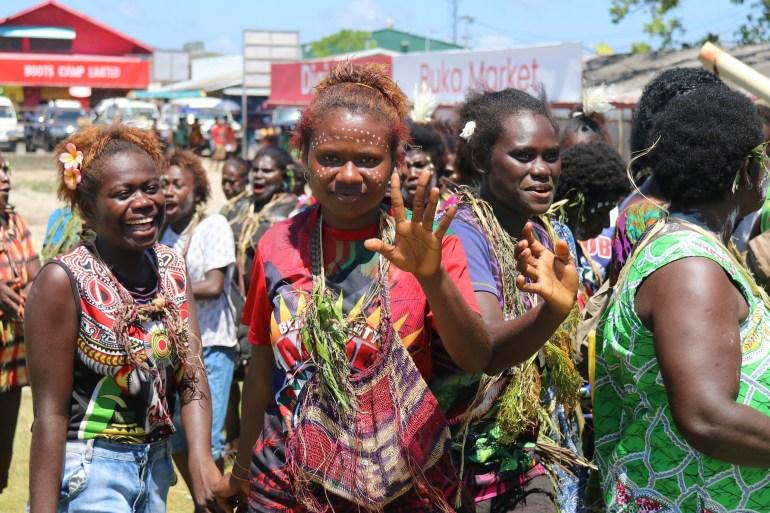Bougainville voted for independence in 2019, but PNG's parliament has yet to approve the separation.
Nearly five years after the islanders of remote Bougainville voted decisively in a referendum for independence from Papua New Guinea (PNG), local frustrations are rising as the political process falters.
More than 97 percent of voters in the autonomous island region of about 300,000 people, in eastern PNG, chose independence over greater autonomy in a 2019 referendum. But there cannot be a change in its political status until the result has been ratified by PNG’s parliament.
After high-level talks stalled, parliamentary ratification, which was supposed to take place last year, failed to happen. Achieving it this year is "a possibility, but not yet a likelihood," Professor Anthony Regan of the Department of Pacific Affairs at the Australian National University (ANU) told Al Jazeera.
Last year, major disagreements about how the ratification process should work led to a breakdown in talks between the national and Bougainville governments. A major bone of contention is that Bougainville wants the parliamentary vote to be a simple majority, while PNG says it should be a two-thirds majority.
Both parties have agreed an international moderator is needed to break the deadlock, but any appointment is likely to take time.
"I am not too satisfied with the current progress [of Bougainville’s Independence]. It’s almost five years since the referendum, and there is still no positive response from the PNG government," Barbara Tanne, president of the Bougainville Women's Federation, told Al Jazeera.
It is deeply "frustrating", Theresa Jaintong, a local government member in Arawa, Central Bougainville, added. "After joint government meetings, the resolutions passed are not honored ... The PNG government must come out clear as we people of Bougainville must know."
For 56-year-old Ishmael Toroama, the former rebel fighter who was elected Bougainville’s president in 2020 with a mandate to achieve statehood, the pressure is intensifying.
Last month, he called on PNG’s parliament to make good on their promises.
"I am committed to the independence of Bougainville," he said in a statement.
Meanwhile, the Panguna mine, previously at the center of the civil war, is now party to two competing legal challenges.
In May, a class action suit against Rio Tinto by nearly 4,000 local landowners and residents affected by the mine’s former operations was announced. The case, funded by unnamed foreign investors, is seeking billions of dollars in compensation for the mine's social and environmental impact, which includes contamination of agricultural land and waterways.
Source: ALJAZEERA
ALJAZEERA MEDIA NETWORK
